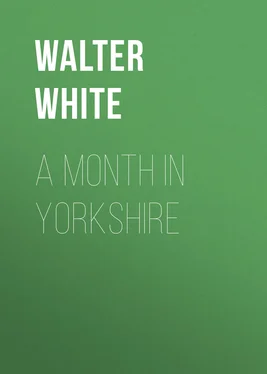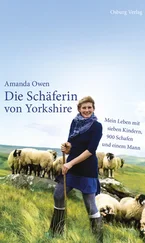Walter White - A Month in Yorkshire
Здесь есть возможность читать онлайн «Walter White - A Month in Yorkshire» — ознакомительный отрывок электронной книги совершенно бесплатно, а после прочтения отрывка купить полную версию. В некоторых случаях можно слушать аудио, скачать через торрент в формате fb2 и присутствует краткое содержание. Жанр: Путешествия и география, История, foreign_edu, foreign_antique, foreign_prose, на английском языке. Описание произведения, (предисловие) а так же отзывы посетителей доступны на портале библиотеки ЛибКат.
- Название:A Month in Yorkshire
- Автор:
- Жанр:
- Год:неизвестен
- ISBN:нет данных
- Рейтинг книги:3 / 5. Голосов: 1
-
Избранное:Добавить в избранное
- Отзывы:
-
Ваша оценка:
- 60
- 1
- 2
- 3
- 4
- 5
A Month in Yorkshire: краткое содержание, описание и аннотация
Предлагаем к чтению аннотацию, описание, краткое содержание или предисловие (зависит от того, что написал сам автор книги «A Month in Yorkshire»). Если вы не нашли необходимую информацию о книге — напишите в комментариях, мы постараемся отыскать её.
A Month in Yorkshire — читать онлайн ознакомительный отрывок
Ниже представлен текст книги, разбитый по страницам. Система сохранения места последней прочитанной страницы, позволяет с удобством читать онлайн бесплатно книгу «A Month in Yorkshire», без необходимости каждый раз заново искать на чём Вы остановились. Поставьте закладку, и сможете в любой момент перейти на страницу, на которой закончили чтение.
Интервал:
Закладка:
The lesser tower stands at the foot of the inner slope, where its base is covered by every tide. Its height is fifty feet, and the entrance, approached by a long wooden bridge, is far above reach of the water. This is the third tower erected on the same spot; the two which preceded it suffered so much damage from the sea that they had to be rebuilt.
About the time that ambitious Bolingbroke landed, a good hermit, moved with pity by the number of wrecks, and the dangers that beset the mouth of the estuary, set up a light somewhere near Ravenser. But finding himself too poor to maintain it, he addressed a petition to the “wyse Commons of Parliament,” for succour, and not in vain. The mayor of Hull, with other citizens, were empowered “to make a toure to be up on daylight and a redy bekyn wheryn shall be light gevyng by nyght to alle the vesselx that comyn into the seid ryver of Humbre.”
In the seventeenth century, Mr. Justinian Angell, of London, obtained a license to build a lighthouse on the Spurn. It was an octagonal tower of brick, displaying an open coal fire on the top, which in stormy weather was frequently blown quite out, when most wanted. Wrecks were continually taking place; and it is only since Smeaton completed his tower, and the floating-light was established in the offing, and the channel was properly buoyed, that vessels can approach the Humber with safety by night as well as by day.
It was full tide when I returned along the chalky embankment, and the light spray from the breakers sprinkled my cheek, giving me a playful intimation of what might be expected in a storm.
I was passing a tilery near Welwick, when a beery fellow, who sat in the little office with a jug before him and a pipe in his mouth, threw up the window and asked, in a gruff, insolent tone, “A say, guvner, did ye meet Father Mathew?”
“Yes.”
“What did he say to ye?”
“He told me I should see a fool at the tileworks.”
Down went the window with a hearty slam, and before I was fifty yards away, the same voice rushed into the road and challenged me to go back and fight. And when the owner of the voice saw that the stranger took no heed thereof, he cried, till hidden by a bend in the road, “Yer nothin’ but t’ scram o’ t’ yerth!—yer nothin’ but t’ scram o’ t’ yerth!”
Thinking scram might be the Yorkshire for scum , I made a note of it for the benefit of philologists, and kept on to Patrington, where I arrived in time for the last train to Hull, quite content with six-and-twenty miles for my first day’s walk.
CHAPTER IV
Northern Manners—Cottingham—The Romance of Baynard Castle—Beverley—Yorkshire Dialect—The Farmers’ Breakfast—Glimpses of the Town—Antiquities and Constables—The Minster—Yellow Ochre—The Percy Shrine—The Murdered Earl—The Costly Funeral—The Sister’s Tomb—Rhyming Legend—The Fridstool—The Belfry.
Journeying from Hull to Beverley by ‘market-train’ on the morrow, I had ample proof, in the noisy talk of the crowded passengers, that Yorkshire dialect and its peculiar idioms are not “rapidly disappearing before the facilities for travel afforded by railways.” Nor could I fail to notice what has before struck me, that taken class for class, the people north of Coventry exhibit a rudeness, not to say coarseness of manners, which is rarely seen south of that ancient city. In Staffordshire, within twenty miles of Birmingham, there are districts where baptism, marriage, and other moral and religious observances considered as essentials of Christianity, are as completely disregarded as among the heathen. In some parts of Lancashire and Yorkshire similar characteristics prevail; but rude manners do not necessarily imply loose morality. Generally speaking the rudeness is a safety-valve that lets off the faults or seeming faults of character; and I for one prefer rudeness to that over-refinement prevalent in Middlesex, where you may not call things by their right names, and where, as a consequence, the sense of what is fraudulent, and criminal, and wicked, has become weakened, because of the very mild and innocent words in which ‘good society’ requires that dishonesty and sin should be spoken of.
If we alight at Cottingham and take a walk in the neighbourhood we may discover the scene of a romantic incident. There stood Baynard Castle, a grand old feudal structure, the residence of Lord Wake. When Henry VIII. lay at Hull, he sent a messenger to announce a royal visit to the castle, anticipating, no doubt, a loyal reception; but the lord instead of pride felt only alarm, for his wife, whom he loved truly, was very beautiful, and he feared for the consequences should the amorous monarch set eyes on her beauty. He resolved on a stratagem: gave instructions to his confidential steward; departed at dead of night with his wife; and before morning nothing of the castle remained but a heap of smoking ruins. The king, on hearing of the fire, little suspecting the cause, generously sent a gift of two thousand pounds, with friendly words, to mitigate the loss; but the wary lord having evaded the visit, refused also to receive the money. And now, after lapse of centuries, there is nothing left but traces of a moat and rampart, to show the wayfarer where such an ardent sacrifice was made to true affection.
Even among the farmers, at whose table I took breakfast at the Holderness Hotel , at Beverley, there was evidence that broad Yorkshire is not bad Dutch, as the proverb says:
“Gooid brade, botter, and cheese,
Is gooid Yorkshire, and gooid Friese.”
The farmers talked about horses, and, to my surprise, they ate but daintily of the good things, the beef, ham, mutton, brawn, and other substantial fare that literally burdened the table. Not one played the part of a good trencherman, but trifled as if the victim of dinners fashionably late; and still more to my surprise, when the conversation took a turn, they all spoke disdainfully of walking. That sort of exercise was not at all to their liking. “I ha’n’t walked four mile I don’t know when,” said one; and his fellows avowed themselves similarly lazy. My intention to walk along the coast to the mouth of the Tees appeared to them a weakminded project.
Beverley has a staid, respectable aspect, as if aware of its claims to consideration. Many of the houses have an old-world look, and among them a searching eye will discover unmistakable bits of antiquity. A small columnar building in the market-place is called the market-cross; beyond it stands a rare old specimen of architecture, St. Mary’s church, the scene of the accident recorded by the ancient rhymer:—
“At Beverley a sudden chaunce did falle,
The parish chirche stepille it fell
At evynsonge tyme, the chaunce was thralle,
Ffourscore folke ther was slayn thay telle.”
Beyond the church, one of the old town gates, a heavy stone arch, bestrides the street. At the other end of the town, screened by an ancient brick wall, you may see the house of the Black Friars—more venerable than picturesque—besides little glimpses of the middle ages on your straggling saunter thither. Among these are not a few of that sort of endowments which give occasion for abuses, and perpetuate helplessness. And of noticeable peculiarities you will perhaps think that one might be beneficially imitated in other towns. A Constable Lives Here is a notification which you may read on sundry little boards, topped by a royal crown, nailed here and there over the doors.
But the minster is the great attraction, rich in historical associations and architectural beauty. The edifice, as it now appears, has all been built since the destruction by fire, in 1138, of an older church that stood on the same spot. The style is diverse, a not uncommon characteristic of ancient churches: Early English at the east end, Decorated in the nave, and Perpendicular in the west front and some minor portions. This western front is considered the master-work, for not one of its features is out of harmony with the others—a specimen of the Perpendicular, so Rickman signifies, not less admirable than the west front of York Minster of the Decorated. The effect, indeed, is singularly striking as you approach it from a quiet back street. I found a seat in a favourable point of view, and sat till my eye was satisfied with the sight of graceful forms, multiplied carvings, the tracery and ornament from base to roof, and upwards, where the towers, two hundred feet in height, rise grandly against the bright blue sky.
Читать дальшеИнтервал:
Закладка:
Похожие книги на «A Month in Yorkshire»
Представляем Вашему вниманию похожие книги на «A Month in Yorkshire» списком для выбора. Мы отобрали схожую по названию и смыслу литературу в надежде предоставить читателям больше вариантов отыскать новые, интересные, ещё непрочитанные произведения.
Обсуждение, отзывы о книге «A Month in Yorkshire» и просто собственные мнения читателей. Оставьте ваши комментарии, напишите, что Вы думаете о произведении, его смысле или главных героях. Укажите что конкретно понравилось, а что нет, и почему Вы так считаете.












